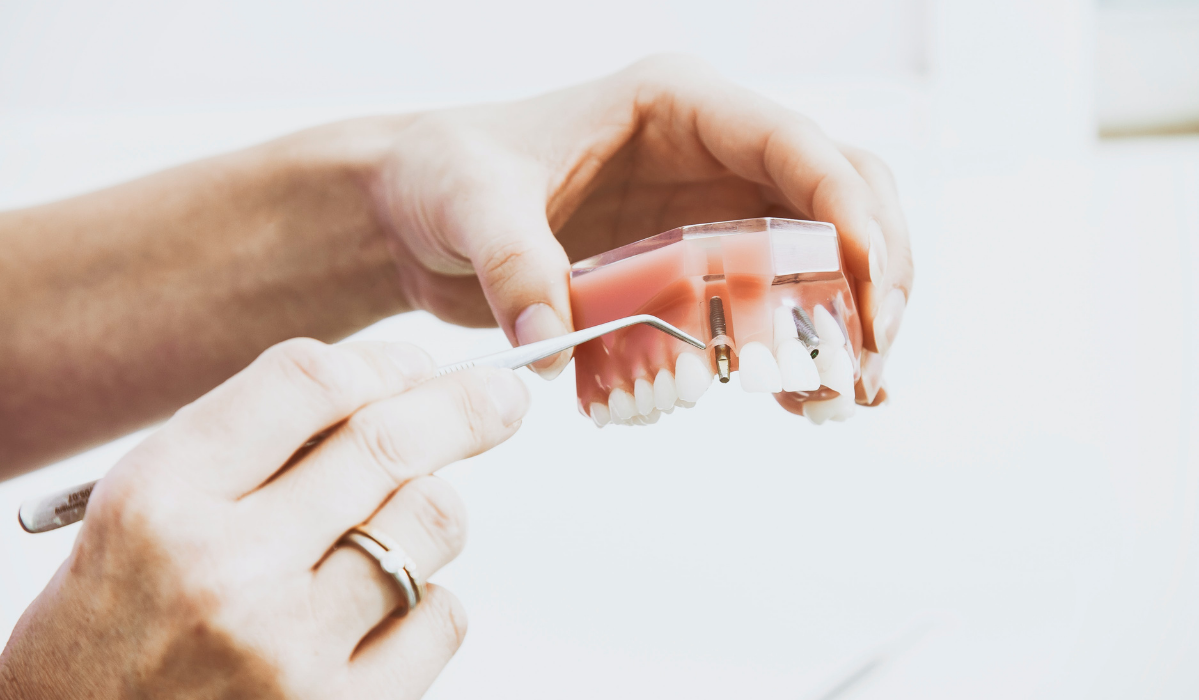While dental implants boast impressive success rates exceeding 95%, failures can still occur and require immediate attention. At Dentistry Dunnville, we understand that recognizing early warning signs and implementing preventive measures are crucial for long-term dental implants success. When dental implants do fail, prompt intervention and appropriate treatment can often salvage the situation and restore optimal oral health for our Dunnville patients.
Understanding Common Causes of Dental Implants Failure
Infection represents the leading cause of dental implants failure, often developing around the implant site due to bacterial accumulation. Poor oral hygiene allows harmful bacteria to proliferate, leading to peri-implantitis, a condition similar to gum disease that affects the tissues surrounding the implant. This inflammatory process can destroy the bone supporting the implant, ultimately causing failure.
Smoking significantly increases the risk of implant failure by reducing blood flow to the healing tissues. Nicotine restricts blood vessels, impairing the body’s ability to deliver essential nutrients and oxygen to the implant site. This compromised healing environment makes it difficult for the implant to integrate properly with the jawbone.
Inadequate bone density or volume at the implant site can also lead to failure. When insufficient bone exists to support the implant, proper osseointegration cannot occur. Some patients may require bone grafting procedures before implant placement to ensure adequate support for long-term success.
Recognizing Early Warning Signs of Dental Implants Problems
Persistent pain or discomfort around the implant site often indicates developing complications. While some initial discomfort is normal after implant placement, ongoing pain that worsens or doesn’t improve with time requires professional evaluation. Patients should contact Dentistry Dunnville immediately if pain persists beyond the expected healing period.
Swelling, redness, or bleeding around the implant site can signal infection or other complications. Healthy implant sites should appear pink and firm, similar to natural gum tissue. Any changes in color, texture, or the presence of discharge warrant immediate professional attention.
Mobility or looseness of the implant or crown indicates a serious problem requiring urgent care. Implants should feel completely stable, just like natural teeth. Any movement or shifting suggests that the implant has not integrated properly or that complications have developed.
Prevention Strategies for Dental Implants Success
Maintaining excellent oral hygiene represents the most important factor in preventing implant failure. Regular brushing, flossing, and professional cleanings help control bacterial growth and prevent infection around the implant site. Patients should use appropriate cleaning tools and techniques specifically designed for implant care.
Avoiding tobacco products significantly improves the chances of implant success. Patients who smoke should quit before implant placement and remain tobacco-free throughout the healing process. This lifestyle change dramatically improves healing outcomes and reduces the risk of complications.
Regular follow-up appointments allow for early detection and treatment of potential problems. Professional monitoring helps identify issues before they become serious, often allowing for conservative treatment approaches that preserve the implant.
Treatment Options for Failed Dental Implants
When implant failure occurs, removal of the failed implant is often necessary to prevent complications. The removal process involves carefully extracting the implant while preserving as much surrounding bone and tissue as possible. This procedure is typically performed under local anesthesia and causes minimal discomfort.
Site healing and regeneration follow implant removal, allowing the tissues to recover before considering replacement options. The healing period typically lasts several months, during which bone and soft tissue regenerate. During this time, patients may receive temporary restorations to maintain function and aesthetics.
Bone grafting procedures may be necessary to rebuild lost bone structure before placing a replacement implant. These procedures help restore adequate bone volume and density to support a new implant. The grafting process adds time to the overall treatment but significantly improves the chances of long-term success.
Replacement Procedures for Dental Implants
Once the site has healed completely, replacement implant placement can often be performed successfully. The new implant is typically placed in a slightly different position to take advantage of the healthiest available bone. Advanced surgical techniques and improved implant designs contribute to higher success rates for replacement procedures.
Alternative treatment options may be considered if implant replacement is not feasible. These alternatives might include removable partial dentures, fixed bridges, or other restorative solutions. The choice depends on the specific circumstances and the patient’s preferences and needs.
Professional Care at Dentistry Dunnville
At Dentistry Dunnville, comprehensive implant care includes thorough pre-treatment evaluation, precise surgical placement, and ongoing maintenance support. Our team uses advanced diagnostic tools and techniques to maximize the chances of implant success and minimize the risk of complications.
Regular maintenance appointments allow for professional cleaning and monitoring of implant health. These visits help detect potential problems early and provide opportunities for preventive interventions that can preserve implant function.
Long-term Success Strategies for Dental Implants
Patient education plays a crucial role in preventing implant failure and ensuring long-term success. Understanding proper care techniques, recognizing warning signs, and maintaining regular professional care all contribute to optimal outcomes. Patients who actively participate in their implant care typically experience the best long-term results.
Lifestyle modifications, including tobacco cessation and excellent oral hygiene, significantly improve implant longevity. These changes benefit not only implant health but overall oral and systemic health as well.
Professional Support for Dental Implants Care
At Dentistry Dunnville, ongoing support and education help patients maintain their implant investments successfully. The dental team provides personalized instruction on proper care techniques and monitors implant health during regular visits.
Early intervention remains key to addressing potential problems before they become serious complications. Professional monitoring and patient awareness work together to ensure optimal long-term outcomes.
If you have concerns about your implants or are experiencing any warning signs of complications, contact Dentistry Dunnville at 905-774-7608 immediately. Early intervention often prevents minor problems from becoming major complications, preserving your investment in implant treatment and maintaining optimal oral health.


0 Comments